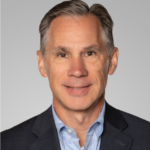The decision to centralize or decentralize your company’s operations depends on your industry, size, number of locations, and leadership. In a centralized operation, all major decisions related to planning and operations are concentrated within a few individuals in top management. Decentralizing operations involves delegating authority within the entire organization.
Centralization is the systematic and consistent limitation of authority at central points within the organization. It limits decision-making power to top managers, operating authority to middle managers, and operations to lower-level employees at the direction of top management. For instance, in many small businesses, owners make decisions about important matters and the department heads carry out the instructions and orders for functions such as production, finance, and marketing.
The degree of centralization or decentralization depends largely on the amount of authority delegated to the lowest level in an organization. Decentralization is a planned and systematic effort to delegate to the lowest levels of an organization.
In a decentralized company, managers are delegated responsibility for planning and controlling operations of their divisions. These divisions are typically structured around the company’s products, customers, or regions, and in some instances, managers may have responsibility for operations, profits, and fixed-asset purchases.
The advantages of decentralized operations include maintaining daily contact with operations and having individual managers with expertise in all product lines and services. In many instances, managers in decentralized operations are closer to the operations, resulting in quicker decision making than could be made by top management.
Decentralized operations also become excellent training grounds for managers, providing valuable experience early in their careers. Additionally, these managers often work closely with customers, learning their wants and needs, and can often provide ideas for improvement.
A disadvantage of decentralized operations is that one or two managers may have significant responsibility, and poor decisions could negatively impact a company’s profits and reputation. Another disadvantage may be the duplication of assets and expenses. For example, decentralization may require sales forces for each product line and could also result in duplicate staffing in other parts of the organization.
A few additional key points related to centralization and decentralization of operations:
- There is more burden on the CEO and top management in a centralized operations environment because they may be involved in every aspect of the business.
- In a centralized environment, top management/owners may take longer in their decision-making process, resulting in additional time to accomplish certain tasks.
- In decentralized environments, subordinates are more involved in the decision-making process, allowing them to act independently and quickly develop higher-level skills and capabilities.
- In a decentralized structure, operations can be coordinated at the divisional level, which is not possible in a centralized organization.
- In a decentralized model, there is greater motivation and higher morale because employees are involved more in the decision-making process and act independently of top management.
- Decentralized structures generally require additional coordinated effort because there may be many departments or divisions and authority is delegated to the maximum extent possible.
The degree of centralization or decentralization can be affected by factors like the nature of operations, volume of profits, number of locations, number of departments or divisions and sophistication of management. For large organizations, a decentralized setup may better handle the demands of separate divisions or large departments. As companies grow, expand, and evolve, business owners may need to consider changing their organizational structure to meet those needs.
Richard Snyder can be reached at Email or 215.441.4600.

